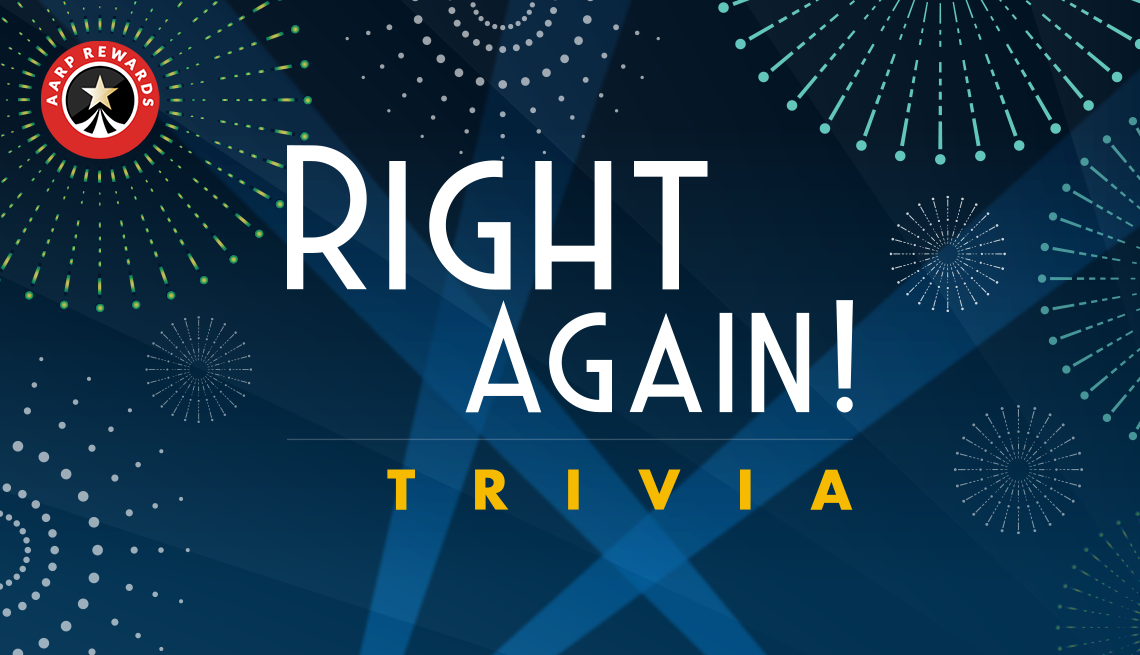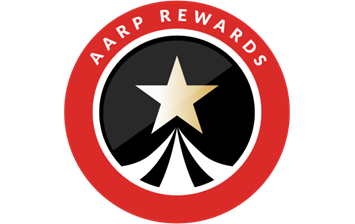AARP Eye Center
- AARP Online Community
- Games
- Games Talk
- SongTheme
- Games Tips
- Leave a Game Tip
- Ask for a Game Tip
- AARP Rewards
- AARP Rewards Connect
- Earn Activities
- Redemption
- AARP Rewards Tips
- Ask for a Rewards Tip
- Leave a Rewards Tip
- Caregiving
- Caregiving
- Grief & Loss
- Caregiving Tips
- Ask for a Caregiving Tip
- Leave a Caregiving Tip
- Help
- Membership
- Benefits & Discounts
- General Help
- Entertainment Forums
- Rock N' Roll
- Let's Play Bingo!
- Leisure & Lifestyle
- Health Forums
- Brain Health
- Conditions & Treatments
- Healthy Living
- Medicare & Insurance
- Health Tips
- Ask for a Health Tip
- Leave a Health Tip
- Home & Family Forums
- Friends & Family
- Introduce Yourself
- Housing
- Late Life Divorce
- Our Front Porch
- Money Forums
- Budget & Savings
- Scams & Fraud
- Retirement Forum
- Retirement
- Social Security
- Technology Forums
- Computer Questions & Tips
- About Our Community
- Travel Forums
- Destinations
- Work & Jobs
- Work & Jobs
- AARP Online Community
- Home & Family Forums
- Our Front Porch
- Re: Coffee !
Coffee !
- Subscribe to RSS Feed
- Mark Topic as New
- Mark Topic as Read
- Float this Topic for Current User
- Bookmark
- Subscribe
- Printer Friendly Page
- Mark as New
- Bookmark
- Subscribe
- Mute
- Subscribe to RSS Feed
- Permalink
- Report
Coffee !
I've been all over these forums & can't find the 'right forum', so mybe i'll find an answer on the front porch ? ![]()
I have 2 cans of 'cheapie' coffee ; tried mixing them so they would be more flavorful, but not-so-much did it work. Might buy a more spendy brand & mix them, but in meantime, anyone have any ideas on how to make these cheap brands taste better ?
Thanks !
- Mark as New
- Bookmark
- Subscribe
- Mute
- Subscribe to RSS Feed
- Permalink
- Report
Tried my first instant coffee for camping or just in case of no power, add 8 oz hot water you’re golden.
Think more will be coming it’s a kick starter at present.
Called JIvacubes.com compressed Colombian coffee with cane sugar into cubes.
Comes from Miami, think I may be in love for convenience.
If I don’t want to take percolator, stove top drip maker or French press along.
Also according to my handy dandy coffee guy, you might like to stock up now on your particular level of coffee happiness, tariff’s happen.
Froze
- Mark as New
- Bookmark
- Subscribe
- Mute
- Subscribe to RSS Feed
- Permalink
- Report
- Mark as New
- Bookmark
- Subscribe
- Mute
- Subscribe to RSS Feed
- Permalink
- Report
Maxwell House is a brand of coffee manufactured by a like-named division of Kraft Heinz. Introduced in 1892 by wholesale grocer Joel Owsley Cheek (1852-1935),[1] it was named in honor of the Maxwell House Hotel in Nashville, Tennessee. For many years, until the late 1980s, it was the largest-selling coffee in the United States. The company's slogan is "Good to the last drop", which is often incorporated into their logo and is printed on their labels.
Maxwell HouseTypeIndustryFoundedHeadquartersParentWebsite |
| Subsidiary |
| Beverage |
| 1892; 126 years ago |
| Tarrytown, New York |
| Kraft Heinz |
| maxwellhousecoffee.com |


Early originsEdit
In 1884 Joel Cheek moved to Nashville and met Roger Nolley Smith, a British coffee broker who could reportedly tell the origin of a coffee simply by smelling the green beans. Over the next few years, the two worked on finding the perfect blend, and in 1892 Cheek approached the food buyer for the Maxwell House Hotel and gave him 20 pounds of his special blend for free. After a few days, the coffee was gone, and the hotel returned to its usual brand until hearing of complaints from patrons and others who liked Cheek's coffee better, the hotel bought Cheek's blend exclusively[citation needed]
Inspired by his success, Cheek resigned from his job as a coffee broker and formed a wholesale grocery distributor with partner Maxwell Colbourne, the Nashville Coffee and Manufacturing Company, specializing in coffee with Maxwell House Coffee, as it came to be known, as the central brand. Later, the Nashville Coffee and Manufacturing Company was renamed the Cheek-Neal Coffee Company. Over the next several years, the Maxwell House Coffee brand became a well-respected name that set it apart from the competition.[2]
"Good to the last drop"Edit
In 1915 Cheek-Neal began using a "Good to the last drop" slogan to advertise their Maxwell House Coffee. For several years, the ads made no mention of Theodore Roosevelt as the phrase's originator. By the 1930s, however, the company was running advertisements that claimed that the former president had taken a sip of Maxwell House Coffee on a visit to Andrew Jackson's estate, The Hermitage, near Nashville on October 21, 1907, and when served coffee, he proclaimed it to be "good to the last drop".[3]During this time, Coca-Cola also used the slogan "Good to the last drop".[4] Later, Maxwell House distanced itself from its original claim, admitting that the slogan was written by Clifford Spiller, former president of General Foods Corporation, and did not come from a Roosevelt remark overheard by Cheek-Neal. The phrase remains a registered trademark of the product and appears on its logo.
The veracity of the Roosevelt connection to the phrase has never been historically established. In the local press coverage of Roosevelt's October 21 visit, a story concerning Roosevelt and the cup of coffee he drank features a quote which does not resemble the slogan.[5] The Maxwell House Company claimed in its own advertising that the Roosevelt story was true; in 2009, Maxwell House ran a commercial with Roosevelt repriser Joe Wiegand, who tells the "Last Drop" story.
- Mark as New
- Bookmark
- Subscribe
- Mute
- Subscribe to RSS Feed
- Permalink
- Report
- Mark as New
- Bookmark
- Subscribe
- Mute
- Subscribe to RSS Feed
- Permalink
- Report
- Mark as New
- Bookmark
- Subscribe
- Mute
- Subscribe to RSS Feed
- Permalink
- Report
Boy did I get a great gift last night. 3 boxes of assorted Coffees from different countries. I took the pups to greet their owners at the Navel Base. The seals came off the transport plan and handed me my gift.. Boy not a minute to late, as it was a long 48hours for me. ..Nancy
- Mark as New
- Bookmark
- Subscribe
- Mute
- Subscribe to RSS Feed
- Permalink
- Report
- Mark as New
- Bookmark
- Subscribe
- Mute
- Subscribe to RSS Feed
- Permalink
- Report
- Mark as New
- Bookmark
- Subscribe
- Mute
- Subscribe to RSS Feed
- Permalink
- Report
6Our favorite coffee when we visited Costa Rica was Cafe Britt. We did visit and toured a coffee plantation on our Hawaiian tour.

WHAT’S IN A COFFEE FARM?
July 2016

Have you ever been sipping a delicious cup of Joe and thought to yourself where on earth did this heavenly beverage come from? We’ve all been there and Britt is here to help answer this burning question. Coffee grows on coffee plantations, each with it’s own style and culture. Here’s an inside look at what some of the plantations we work with look like. Warning: looking at these pictures may make you want to drop everything and visit Costa Rica immediately.
Plantions in general
Costa Rica has the ideal environment for coffee growth and production so there are a lot of coffee plantations around the country


The coffee beans used in your favorite blend are grown on these shrubs.

Coffee Pickers
During harvest season (November to February) the farms fill with coffee pickers who often live with their families in houses on the plantation until the season ends.

Trees
Costa Rican coffee is shade grown meaning it (you guessed it) often grows under the shade of the large trees and foliage of the area.

Animals
It’s not just coffee pickers who make their home on plantations. You’ll also see lots of animals and insects.

Fruits
Coffee beans aren’t the only thing growing here, there’s also an abundance of fresh fruit. Bananas? Guayabas? You choose!

Coffee Mill

Chancadora
This large machine removes the pulp from the outside of the coffee bean to prepare it for roasting.

Coffee Patio
A large space where the beans are left to dry after being washed.

Green beans
It may not look like much, but these little green beans are ready to be roasted!

Coffee Storage
The beans are placed in storage until it is time for them to be roasted and enjoyed by people around the world.

- Tags:
- Coffee time
- Mark as New
- Bookmark
- Subscribe
- Mute
- Subscribe to RSS Feed
- Permalink
- Report

The ad above partly tells the story. Organic and fair trade coffee help improve these working conditions. In some coffee growing areas the working conditions are improving.
Coffee’s bitter side: addressing labor conditions

A farmer in Colombia’s Nariño Department checks his coffee bushes. (© Neil Palmer, CIAT)
Editor’s note: September 29 marks National Coffee Day in the U.S. Throughout the month of September, Human Nature is publishing a special series of reports on the Sustainable Coffee Challenge, a coalition working to make coffee the world’s first sustainable agricultural product. This post is the third in the series.
The coffee sector has a labor problem – or maybe multiple labor problems.
Pruning and weeding of coffee trees, and picking the ripe cherries, is all done by hand on the vast majority of farms, and this labor accounts for up to 60 percent of production costs. Meanwhile, climate change, disease outbreaks and price fluctuations can disrupt traditional labor patterns and lead to labor shortages and create conditions for poor labor practices.
So we have to ask the question: Who is picking our coffee?
Unfortunately, it’s sometimes children. Coffee features prominently among the 75 agricultural commodities listed by the U.S. Department of Labor of goods produced by child or forced labor; the list cites child labor in the coffee-growing areas of 14 countries. Recommendations for companies to prevent these labor abuses include voluntary programs that are often expensive and difficult to implement.
Sometimes, it’s people living and working in poor conditions. Last year, an investigative report revealed “conditions analogous to slavery” in some Brazilian coffee farms, affecting some major retailers.
Sadly, the issue isn’t new and it’s not unique to coffee — but attempts to address it have largely been fragmented and insufficient to tackle the issue at scale.
Enter the Sustainable Coffee Challenge, a collaboration of over 80 actors from across the coffee sector working to make coffee the world’s first sustainable agricultural product.
Donate to help make coffee the world’s first sustainable agricultural product.
“Most discussions of labor begin with the needs and vulnerabilities of workers, but farm owners also face challenges including paper-thin or non-existent profit margins between the wages they pay workers and the sale price that they receive for their coffee, as well as the availability of farm workers during the peak of the coffee harvest,” explained Kim Elena Ionescu, Chief Sustainability Officer at SCA.
To keep labor at the forefront of the coffee sustainability conversation, SCA has made it one of the key focus areas for Avance, the association’s first sustainability conference, being held in Guatemala City on October 11th and 12th. It was important, Ionescu said, to have these difficult conversations in a place coffee is produced — with the people producing the coffee.
As companies along the coffee value chain commit to sustainable sourcing as part of the Challenge, the focus is increasingly on labor issues. While still in its relatively early stages, the Challenge aims to be a powerful platform for improving labor conditions in coffee.
To start, it is shedding light on efforts underway by the sector to address labor conditions and to understand the thicket of laws and legal frameworks that govern — or in fact, don’t — farm labor in the countries where coffee is produced.
“Coffee presents an economic development opportunity for many communities across the tropics — but it must benefit the entire community – including the farm workers who arrive during the harvest to pick the coffee,” said Bambi Semroc, senior strategic adviser at Conservation International, a member of the Sustainable Coffee Challenge. “Addressing labor conditions is critical, yet probably one of the greatest challenges — not just for coffee but for the entire agricultural sector.”
The goal, Semroc says, is to develop guidance and tools that enable the coffee sector to pinpoint potential labor hotspots and to align on joint actions. When taken at scale, these steps will help to professionalize coffee labor in a way that enhances quality and creates a pathway to prosperity for coffee workers and their families.
Sophie Bertazzo is a senior editor at Conservation International.
- Mark as New
- Bookmark
- Subscribe
- Mute
- Subscribe to RSS Feed
- Permalink
- Report
RiSE AND SHINE I'TS COFFEE TIME ❣
GOOD MONDAY MORNING MY COFFEE LOVING FRIENDS ❣
Y'ALL HAVE AN AWESOME DAY ❣ DRINK LOTS OF COFFEE TODAY ❣
MAY YOUR COFFEE BE STRONG AND YOUR MONDAY BE SHORT ❣

- Mark as New
- Bookmark
- Subscribe
- Mute
- Subscribe to RSS Feed
- Permalink
- Report
- Mark as New
- Bookmark
- Subscribe
- Mute
- Subscribe to RSS Feed
- Permalink
- Report
GREETINGS,
I AM GOING TO A COFFEE TASTING TODAY WITH THE VISITING PUPS. SO GLAD THE SEALS SENT ME DIFFERENT COFFEES, NOW I WILL BE ABLE TO TELL THE COFFEES APART. PLUS, DAVE POSTED THE HISTORY OF COFFEE. I SHOULD BE VERY PREPARED. IF NOT THE PUPS ARE SO TRAINED. I WILL GET POINTS FOR THEM.....NANCY
- Mark as New
- Bookmark
- Subscribe
- Mute
- Subscribe to RSS Feed
- Permalink
- Report
- Mark as New
- Bookmark
- Subscribe
- Mute
- Subscribe to RSS Feed
- Permalink
- Report
"I downloaded AARP Perks to assist in staying connected and never missing out on a discount!" -LeeshaD341679




































































